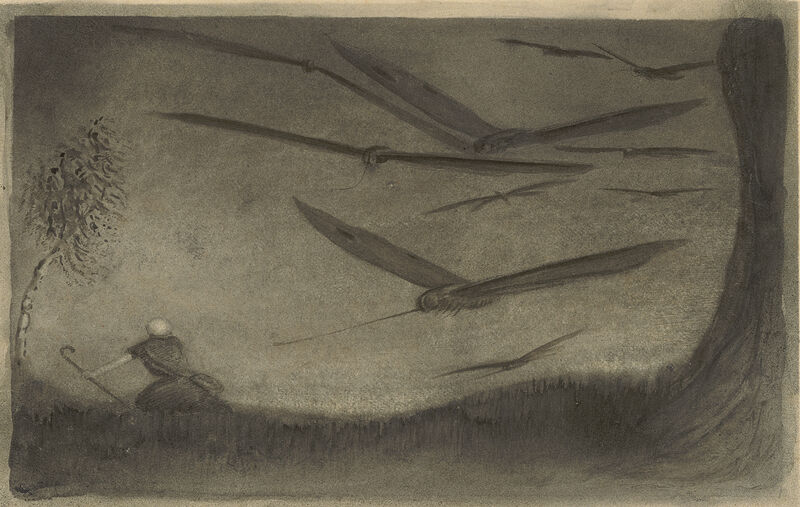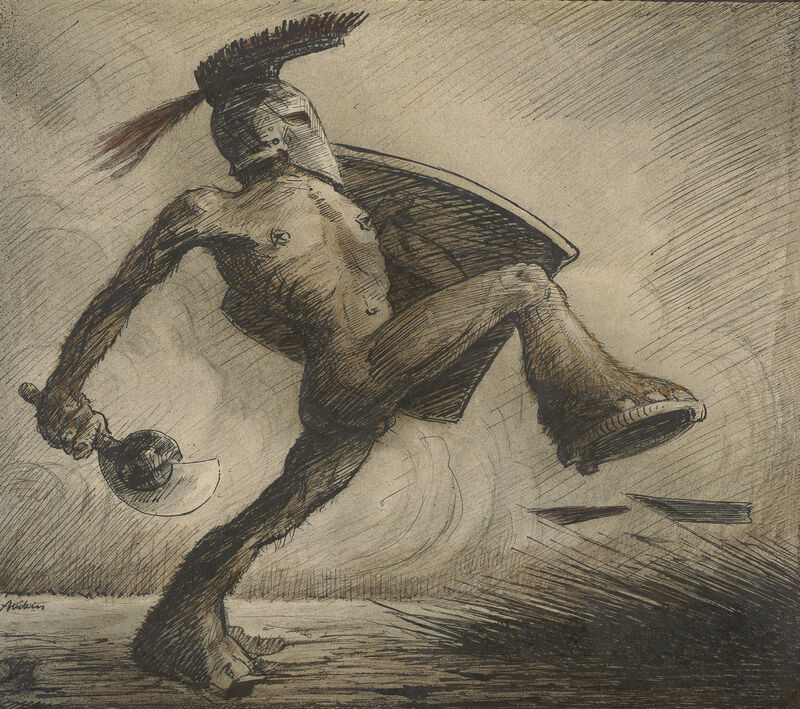
»The Aesthetics of Evil«
One of the greatest graphic artists of the 20th century receives a comprehensive tribute at the ALBERTINA MODERN: Alfred Kubin. The Aesthetics of Evil, compiled from the museum's extensive collection of drawings, opens in Vienna on August 14.

War, torture, epidemics, expulsions: What has burdened people for thousands of years is still relevant today. Alfred Kubin (1877-1959) expressed these and other themes such as the fear of having no influence over one's own fate or eerie dream images in a haunting way. The Austrian graphic artist, who lived through both world wars, depicts what is generally referred to as »evil« as something that determines people's lives. His own pessimistic attitude, which had its origins in various childhood experiences, had an enormous influence on his graphic work. The exhibition Alfred Kubin. The Aesthetics of Evil is a compilation from the extensive collection of around 1,800 drawings at the ALBERTINA Museum in Vienna. It will be on display at the ALBERTINA MODERN from August 14, 2024 to January 6, 2025.
Kubin spent the majority of his life in seclusion with his wife at Zwickledt Castle in Upper Austria, today also known as the Kubin House Memorial. In addition to his independent drawings, Kubin also created important book illustrations for numerous works by romantic and realistic authors such as Edgar Allan Poe, Fyodor Dostoyevsky, E.T.A. Hoffmann and Honoré de Balzac. In 1909, Kubin published the self-illustrated fantastic novel The Other Side, which was well known among his contemporaries and had an influence on Franz Kafka and the German surrealists.
























